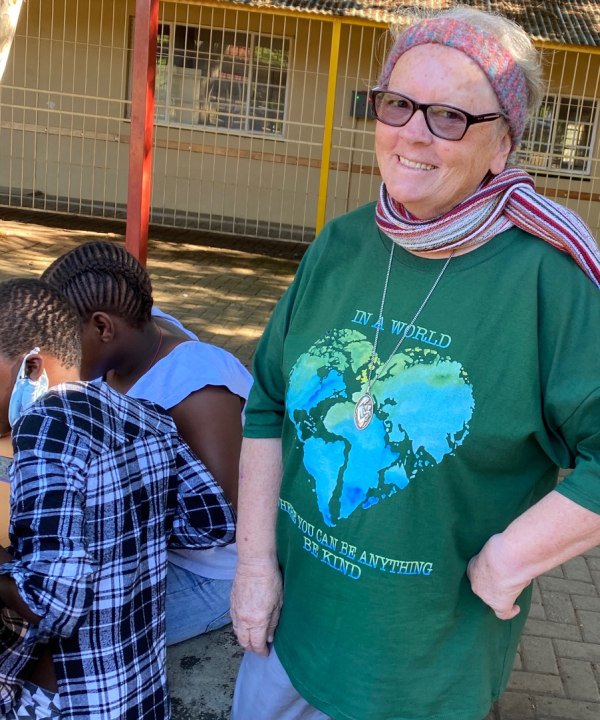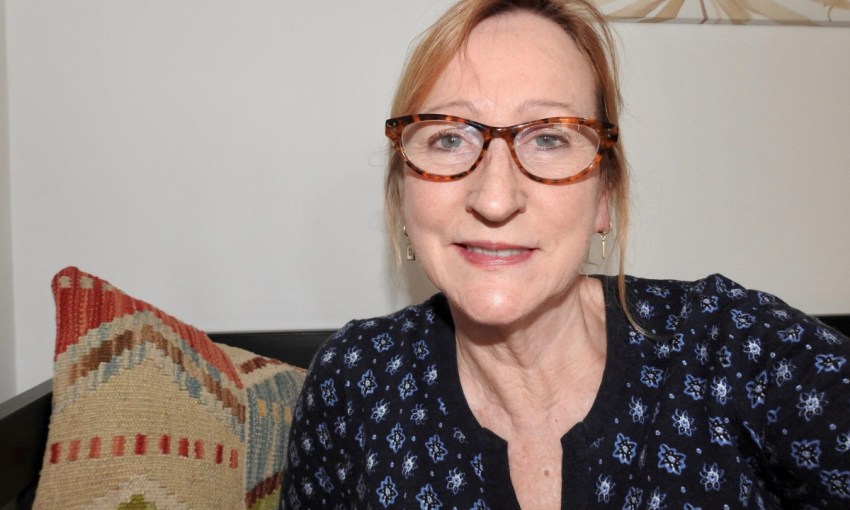As restrictions slowly begin to ease in many places around the world, here are some more stories from South Australians living overseas.
Expats at home – South Australians chat from overseas vol.5
Martina Nicolls, France
Where do you live?
I live in a rental apartment in the 6th arrondissement in Paris, where I’ve been living for the past year, but I have my own apartment in Tbilisi, Georgia, where I’ve lived for 10 years since leaving Australia. In Paris, I have a 5th floor balcony, but no garden.
What is the current feeling in Paris at the moment?
The feeling is liberating now that we have started gradual de-confinement and the relaxation of restrictions after a two-month strict lockdown. The date for de-confinement was 11 May, lifting the one-kilometre zone where movement out of the apartment had to be accompanied with “attestation papers” stating the reason for being outside to the 100-kilometre zone from 11 May without papers, and now the unlimited zone from 2 June. On 2 June, cafés and restaurants in Paris were permitted to open their outdoor terraces. And that has been a joy to me and all Parisians. The Luxembourg Garden was opened on 27 May, in time for late spring and summer, but the Louvre and museums will open in July.
How has your work been affected?
I’m an international peace, development, and human rights/human trafficking consultant, so I have been working from home. The methodology of assignments-in-progress was revised to adjust for the COVID-19 pandemic to ensure “Do No Harm” principles, such as telephone interviews and teleconferencing instead of face-to-face meetings. Assignments that had not started fieldwork have been delayed to start in July or later, or even into 2021, depending on the situation in specific countries. Other assignments have been re-worked to include a review of the effects of the COVID-19 lockdown on people’s human rights, education and health rights, peace, protection, and safety. We’ve had to be creative in connecting teams from many different countries over different time zones, because most consultants have returned home. Surprisingly though, it’s worked out well. We all need to be flexible and adaptable, and amend our approaches on a continuous basis as we gain more information on the local situation.
How have you been spending your time?
I’ve been spending my time working, reading for work and leisure, re-designing my website, and clearing up my files and emails. I’ve also had more time to attend to creative pursuits, such as writing, and I’ve been more creative with salads. Instead of long walks, I’ve been haphazardly doing online workouts with an Australian fitness coach. I also participated in a Georgian-Canadian COVID-19 pandemic documentary in which I was interviewed via Skype. The production is currently being edited, which will take some time because the film crew interviewed 25 people from 20 countries. Now that de-confinement has commenced, I’m back to my walking routines, and visiting the Luxembourg Garden.
How have you been connecting with family and friends back in SA?
I’ve had much, much more time to connect with my sisters in Adelaide, especially keeping up-to-date on my mother’s welfare because she is now in a nursing home. I’ve also had Zoom calls – coffee calls – with friends in Adelaide, some of whom I have not connected with for such a long time. That has been fantastic. So, I’ve been connecting with home much more than usual.
Sister Sally Duigan, South Africa

Where do you live?
I live in a remote part of Limpopo, South Africa at Holy Family Care Centre, Ofcolaco at the foot of the Drakensburg mountains. Here our community of Sisters, volunteers and local staff care for 82 children – many of them with chronic illnesses such as HIV/Aids, TB and other conditions. The children are mostly orphaned and all are vulnerable. We work closely with the Department of Social Development.
What’s the feeling like there at the moment?
President Cyril Ramaphosa addressed the nation a couple of weeks ago and from 1st June we moved from Stage 4 to Stage 3 Lockdown so things will begin to open up a little bit more. We are taking the advice we receive from the Government very seriously. We have been in lockdown now for over 10 weeks and an amazing and unexpected consequence for us is that the children are all healthy for now. People in the nearby villages are afraid to go out. There is a lot of fear because of the predictions that the infection rates will increase rapidly over the next few months. Images of field hospitals being established showing rows and rows of beds lined up appear on the News and this makes me feel anxious and I find myself saying “what if?”. I do try to remain positive and to keep hope alive in the midst of this uncertain time.
How have you had to adapt in your role at work?
Four weeks ago we realized we needed to adapt to our new reality and introduce homeschooling for 56 of our children from Grades R – 10. Normally the children go out to the nearby villages to school each day – so this is quite an adjustment for everybody. We have employed some young tertiary students, whose studies have been interrupted, to teach the children. We have created different classrooms and spaces for each grade. We have 18 children in creche aged between two and four years old and eight babies. In the afternoons there are organised sports activities, the older children play with the little ones outside in the sun and they have also been planting their own vegetable gardens – tomatoes, lettuce, spinach, onions, cabbage, lettuce, chillies and beetroot. They are very proud of their efforts.
How have you been spending your time away from work?
Here there is no time away from work – with so many children living on the premises we never close down. Since Lockdown I haven’t been out at all. Fortunately, others in the community are willing to do our weekly shopping in the town of Tzaneen 50kms from here. Only three can travel in a car and they are often stopped on the way and checked by the police. We are classified as an essential service provider so there haven’t been any problems. I go walking around the property in the late afternoons and often think of the song: “You’ll never walk alone” as children join me.
I have a great big family back in SA – my own siblings, in-laws, nieces, nephews, plenty of cousins and friends – and I keep in contact with them when I can. I subscribe to The New Daily and InDaily so I keep up with the news. My sisters laugh at me and tell me I know more about what is happening in Australian than they do. Sometimes the WiFi here isn’t great but we keep in touch regularly. We use all different kinds of social media. I am usually surrounded by children who love to see who I am talking with and to greet them too. I can’t think of anywhere else in the world where I would rather be right now, than right here with these creative, resilient, beautiful children.
Are you a South Australian overseas? Email your lockdown experiences to zoe@salife.com.au



